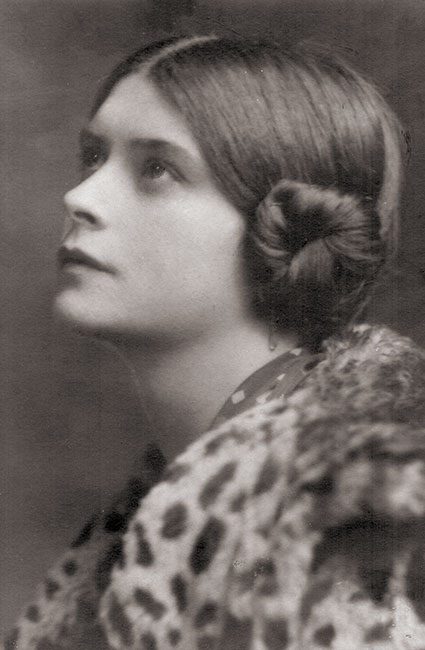Written by: Dr. Carol Rittner, RSM

Sofka Skipwith was born Princess Sofka Dolgorouky in St Petersburg, Russia. Her mother was a descendant of Count Bobrinsky, Catherine the Great’s illegitimate son. After the Revolution of 1917, she emigrated to England and acquired British nationality. She later married Grey Skipwith, a Royal Air Force serviceman killed in the Second World War. Both before and after the war, Sofka worked as secretary to the actor and director Laurence Olivier. She also wrote a cookbook entitled Eat Russian.
During the war Sofka was in France, where the Germans imprisoned her as an enemy alien in Vittel. It was this wartime internment that influenced Sofka to join the Communists because she felt they were the only group strongly resisting the Nazis at the time.
The internment camp in Vittel was mainly for women of British and American nationality, but in June and July 1943, some groups of Polish Jews (about 280) were also sent there. They had identity papers issued by various Latin-American countries and at first the Germans treated them as enemy aliens while their papers were being checked. But the Jews feared greatly for their lives because they had witnessed the atrocities of the Holocaust in Poland.
Sofka immediately did all she could to help them. She negotiated with the camp commandant for them to receive Red Cross food parcels. She arranged for them to have English lessons to help in their post-war lives. She also realised they were in great danger of deportation to death camps if their papers were not recognised as valid.
Sofka tried to save their lives by smuggling lists of names out of the camp, requesting help from various Allied authorities. Because it was difficult to conceal letters, she used a magnifying glass and wrote on flimsy cigarette paper. The lists were then hidden in half-empty toothpaste tubes and the backs of watches, and smuggled out of camp with the help of the French resistance. Although most of those Polish Jews were sent to Auschwitz death camp and murdered, a few managed to remain hidden in the camp, including a baby kept in the camp hospital.
Sofka knew that the French Resistance had offered to hide children. She also had some wire-cutters and had helped some English prisoners to escape. With the help of Madeleine Steinberg, she pushed the hidden baby under the barbed wire towards the waiting hands of a Resistance fighter. That baby reached safety in Palestine: Sofka’s actions had made the difference between life and death.
Quote
“In a letter to Yad Vashem when her case for an award was being considered… Sofka Skipwith wrote: ‘Sadly my efforts in the internment camp of Vittel did not succeed in saving Jewish lives, but I feel proud to be among those who attempted.’”
Quoted in Martin Gilbert, The Righteous
Sofka Skipwith, Sofka: The Autobiography of a Princess. Hart-Davis, 1968.
Martin Gilbert, The Righteous: The Unsung Heroes of the Holocaust. Doubleday, 2002, pp. 231-2.
Milena Jesenska & Margarete Buber-Neumann